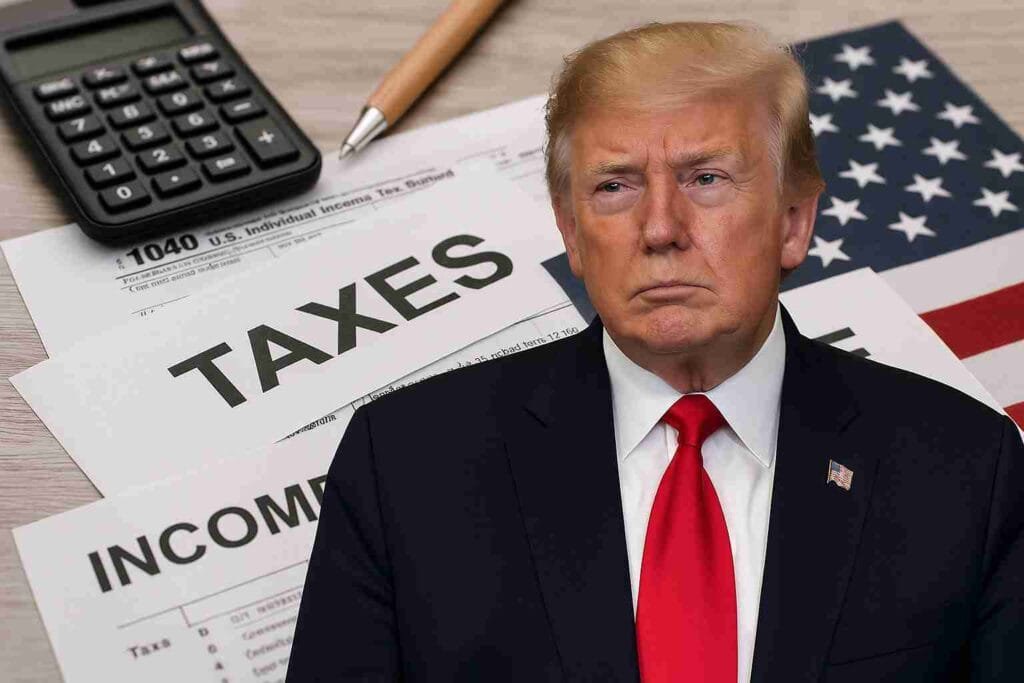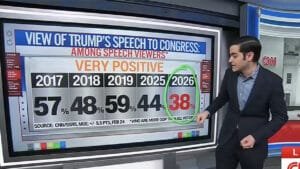Trump’s Massive Tax Plan Is Back, And Senate Republicans Are All In

WASHINGTON – Senate Republicans late Friday rolled out a 940-page tax-cut and spending package backed by former President Donald Trump, teeing up a procedural vote on Saturday that could launch a marathon weekend of congressional debate. Dubbed the One Big Beautiful Bill Act, the proposal would extend the 2017 Trump-era tax cuts, the hallmark of his first term, and introduce additional tax breaks, while significantly boosting military and border-security spending.
It mirrors a similar bill that narrowly passed the Republican-controlled House in May by a 215-214 vote, a measure analysts say would add roughly $3.8 trillion to the nation’s $36.2 trillion debt over the next decade. Senate leaders framed the effort as a cornerstone of their 2025 agenda to deliver on Trump’s policy priorities.
Proposal Highlights and Fiscal Impact
The Senate GOP bill would raise the cap on state and local tax (SALT) deductions to $40,000 (indexed to inflation) through 2029, before reverting to the current $10,000 limit. The higher cap would gradually decrease for earners above $500,000.
It also eases proposed cuts to Medicaid payments by delaying reductions and earmarking $25 billion to rural health providers through 2032. Like the House version, it would eliminate many Biden-era clean energy tax credits, tighten Medicaid and food-aid eligibility, and fund an expansion of Trump’s border enforcement and immigration measures.
Republicans stress that the bill’s centerpiece is “permanent tax relief” aimed at stimulating the economy, while the White House claims it would cut the annual deficit by $1.4 trillion. However, independent analysts dispute that assertion. The nonpartisan Congressional Budget Office estimated the House bill would add about $3.8 trillion to the debt, and Moody’s Investors Service warned in May that extending the 2017 cuts could add trillions to federal debt. In fact, the growing debt, already about 124% of GDP, prompted Moody’s to downgrade the U.S. credit rating last month over fiscal concerns.
Partisan Reactions and Legislative Strategy
Republican leaders praised the bill. Senate Budget Chairman Lindsey Graham (R-S.C.) said passing it would “make our nation more prosperous and secure.” Senate Majority Leader John Thune (R-S.D.) highlighted the new tax cuts in a floor speech, calling them “the centerpiece of our bill” and predicting they would get the economy “firing on all cylinders.”
President Trump, who has urged Congress to act by Independence Day, praised the House version on social media as “arguably the most significant piece of legislation in the History of our Country!” He later indicated the July 4 deadline was “important” but not absolute. House Speaker Mike Johnson (R-La.) similarly hailed the package as “generational, truly nation-shaping legislation” after the House vote.
Democrats, by contrast, condemned the package as tilted toward the wealthy at the expense of vulnerable Americans. Senate Democratic Leader Chuck Schumer (D-N.Y.) said the bill contains “the biggest cuts to food funding ever” and could cost “more than 2 million people” their jobs. He and other Democrats argued that it slashes health, nutrition, and clean energy programs to finance tax breaks for high earners.
Representative Jim McGovern (D-Mass.) called it “a tax scam… designed to steal from you, the American people, and give to Trump’s millionaire and billionaire friends.” Schumer also cited the recent credit downgrade as proof that Republicans’ deficit-financed tax cuts are reckless, saying Moody’s warning should be “a wake-up call” to end their pursuit of what he called a deficit-busting tax giveaway.
Path Ahead in Congress
So far, one senator and one House member have opposed the bill, and lawmakers note that this Congress has not yet rejected any of Trump’s legislative priorities. If the Senate passes the measure early next week as planned, the House is expected to give final approval swiftly and send it to the President.
The legislative fight over Trump’s “big beautiful” agenda is now the central political battle in Washington. Republicans are betting that delivering permanent tax cuts and higher spending now will energize their base and help retain their slim majorities. Democrats argue the bill deepens inequality and fiscal risk at a time of record debt. Whichever way it goes, the vote will underscore the deep partisan divide over taxes, spending, and the direction of U.S. fiscal policy.





